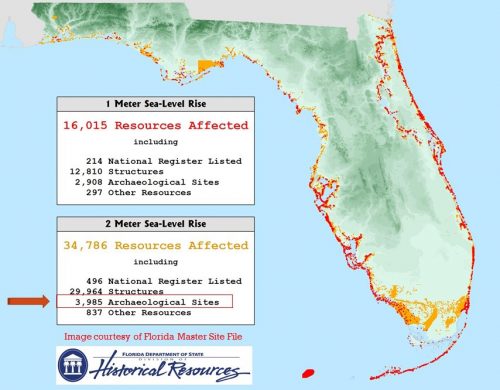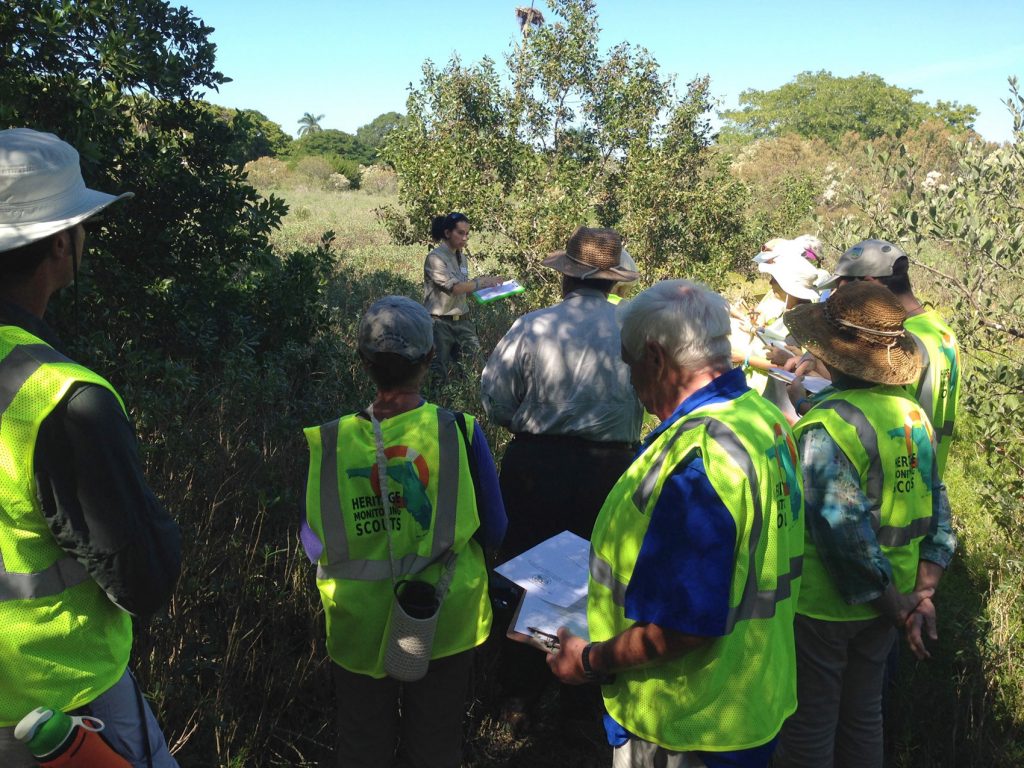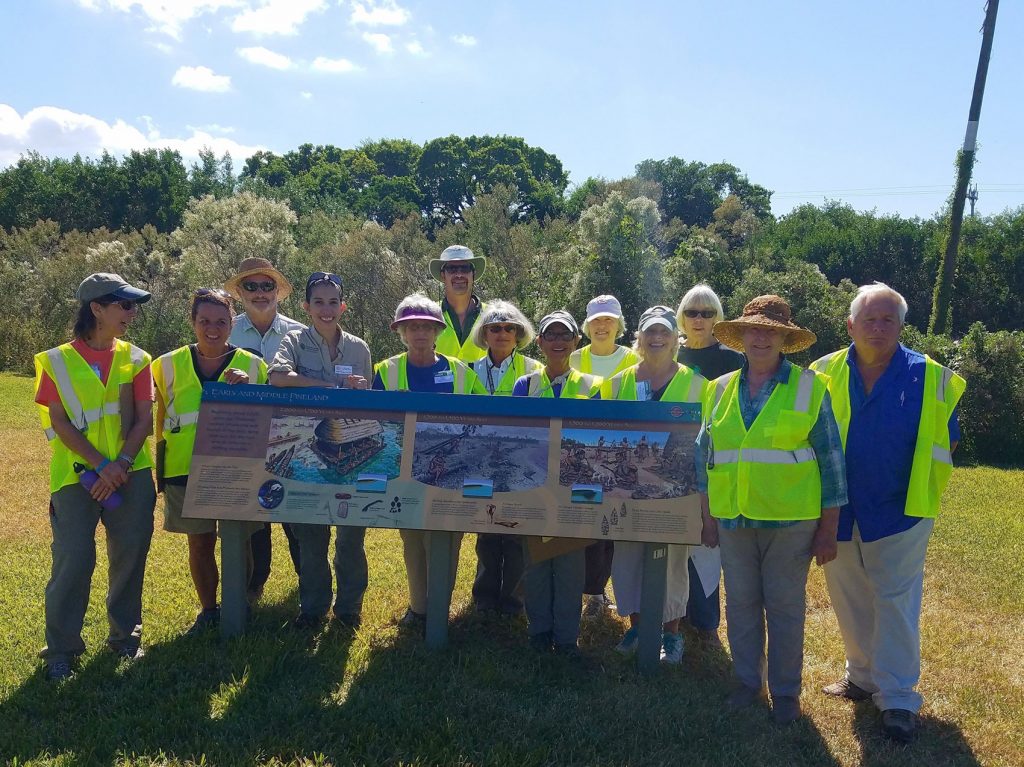On Thursday November 10, 2016, volunteers from the Randell Research Center met at Pineland with Florida Public Archaeology Network’s (FPAN) Southwest Region to learn about FPAN’s Heritage Monitoring Scouts. This program is a citizen science initiative to verify archaeological site information and to monitor sites at risk due to sea level rise.
The workshop was led by Rachael Kangas, Public Archaeology Coordinator for FPAN Southwest, and Sara Ayers-Rigsby, Director of FPAN Southeast/ Southwest regions, and facilitated by Cindy Bear, Coordinator of Programs and Services at the Center. Twelve long-time volunteers attended.
In the morning, the focus was on laws that provide protection of archaeological sites and how sites statewide will be impacted by sea level rise and major weather events. Rachael and Sara also presented modules on photography and artifact identification, although many of this group of volunteers were already well versed due to their years of service with the RRC.
As of 2013, the State of Florida had identified 16,015 historical resources to be impacted by a 1-meter rise in sea level and 34,786 with a 2-meter rise. Of these, 2,908 are archaeological sites (3,985 in the 2-meter scenario). The remainder include historic cemeteries and structures. Pineland is one of many sites in southwest Florida with both archaeological sites and historic buildings that will be impacted by sea level rise.

In the afternoon, volunteers practiced field data gathering and recording at Old Mound. They took photographs, checked the area for signs of erosion and presence of visible artifacts, noted any impacts of visitor traffic, and documented potential threats to the site. These variables, indicators of the site’s condition under the HMS protocol, were recorded into FPAN’s digital database system.
After evaluating Old Mound together, volunteers gathered similar data on their own at other Pineland sites. Three datasets were recorded. At the end of the day, volunteers were given information about other publicly accessible sites. Information contributed by these and other Scouts will be critical to monitoring the impact of sea level rise on Florida archaeological and historical sites and for establishing baseline data for comparison in the event major weather events impact those sites. These RRC volunteers are now ready to be Scouts. Additional trainings will be presented in 2017, with notice of these provided in advance to volunteers and members of the Randell Research Center.
This article was taken from the Friends of the Randell Research Center Newsletter Vol 15, No. 4. December 2016.

